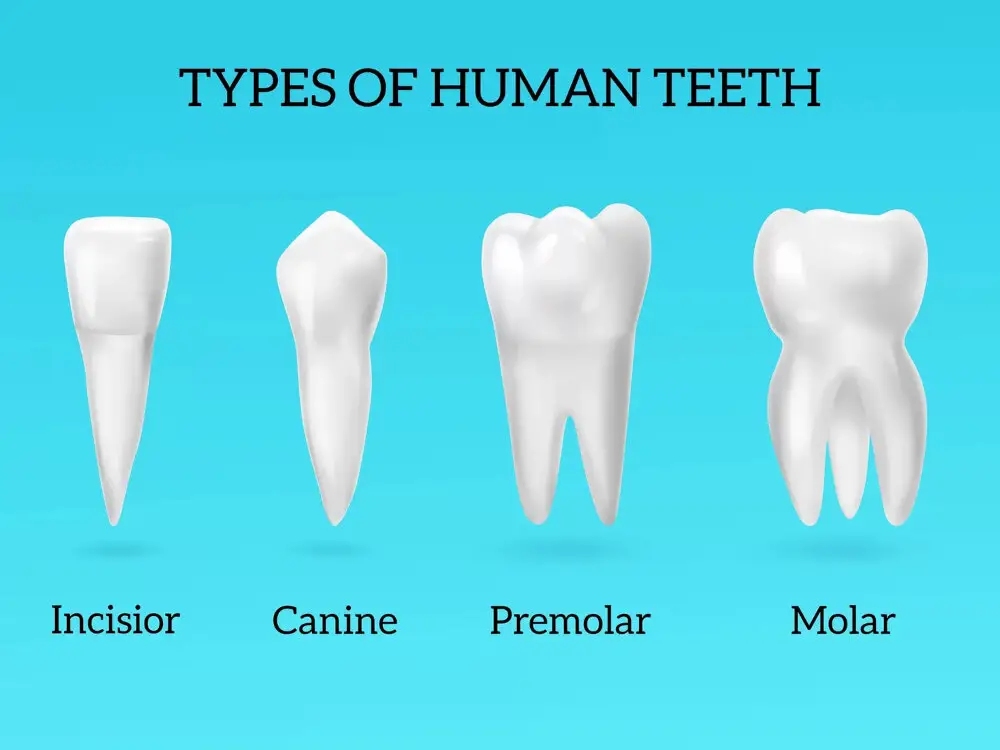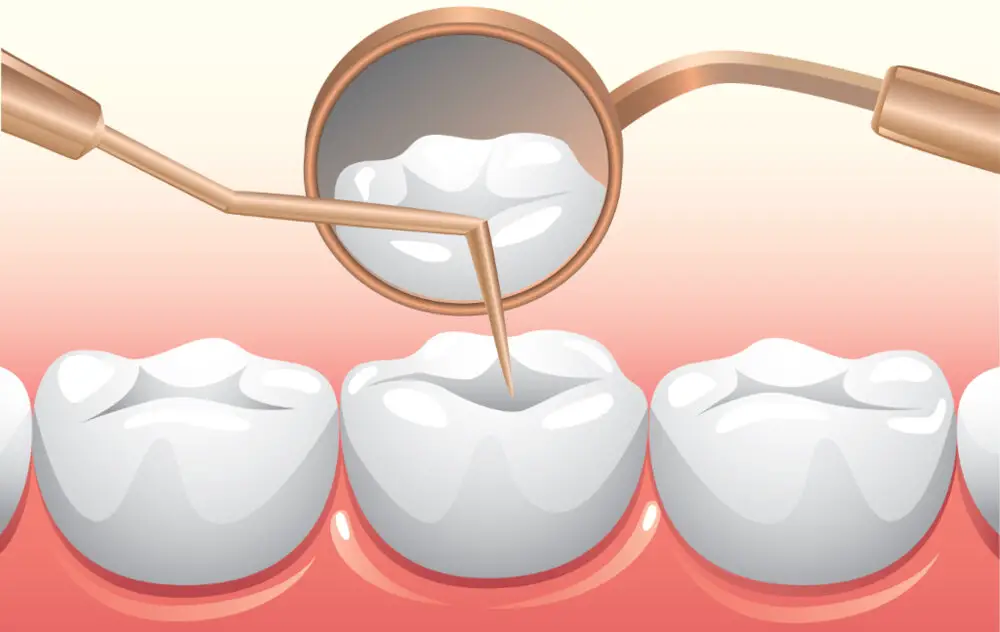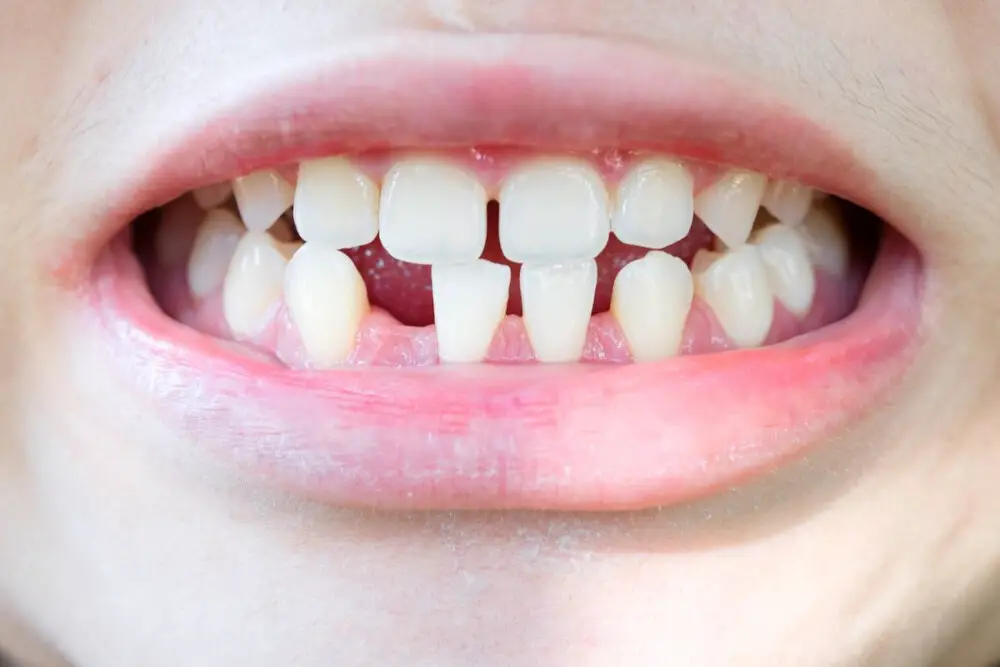10 Nutritious and Delicious Soft Foods to Eat Without Teeth

Soft foods are a great option for individuals who have difficulty chewing or have lost their teeth due to age, injury, or illness. While it may seem challenging to find nutritious and delicious options that require little to no chewing, there are plenty of soft foods out there that can satisfy your taste buds and provide essential nutrients. Whether you’re recovering from dental surgery, have sensitive teeth, or simply prefer softer textures, incorporating these 10 nutritious and delicious soft foods into your diet can help you maintain a balanced and healthy lifestyle. From creamy soups and smoothies to mashed potatoes and pureed fruits, these soft foods are not only easy to prepare but also packed with essential vitamins, minerals, and antioxidants. Whether you’re looking for a quick snack, a light meal, or a healthy dessert, there’s something for everyone on this list. So, get ready to indulge in some fantastic soft foods that are not only tasty but also offer numerous health benefits.
Soft foods are essential for individuals with missing or damaged teeth because they provide a way to maintain a healthy and balanced diet without causing discomfort or pain while eating. These types of foods are also important for those who have undergone dental procedures, such as extractions or implants, as they allow the mouth to heal and prevent any further damage. Additionally, soft foods are easy to chew and swallow, making them ideal for older adults, individuals with jaw pain, and those with digestive issues. Incorporating nutrient-dense soft foods into one’s diet can provide essential vitamins and minerals that promote overall health and well-being. By choosing soft foods, individuals can ensure that they are getting the nutrition they need without sacrificing taste or enjoyment.
Soft foods offer numerous benefits for people who have difficulty chewing or swallowing, including those who have lost their teeth or wear dentures. Firstly, soft foods are easy to digest, which makes them ideal for people with digestive issues. They also tend to be rich in nutrients, such as protein, fiber, and vitamins, which can help to maintain good health. Secondly, soft foods are often more flavorful than harder foods, as they are able to absorb more seasoning and spices. In addition, they can be prepared in a variety of ways, making them a versatile option for meal planning. Finally, soft foods are generally easy to prepare, requiring minimal cooking time and effort, which can be helpful for those with limited mobility or energy. Overall, incorporating soft foods into your diet can be a delicious and nutritious way to maintain good health, regardless of your dental or digestive issues.
Soups and Broths

Soups and broths are an excellent option for those who have lost their teeth or have difficulty chewing. They are warm, comforting, and can be easily customized based on personal preferences. Soups and broths are also packed with nutrients, making them a great addition to any diet. They are rich in vitamins, minerals, and amino acids, which help in the healing process and provide essential nutrients for the body. Soups and broths are also easy to digest, making them perfect for those with digestive issues. There are many different types of soups and broths to choose from, including vegetable, chicken, beef, and seafood. One can also add a variety of ingredients to enhance the flavor and nutritional value of the soup. For instance, adding beans, lentils, or quinoa can increase the protein content, while adding vegetables such as carrots, spinach, or kale can boost the vitamin and mineral content. Overall, soups and broths are an excellent option for those who want to enjoy a delicious and nutritious meal without the need for teeth.
Soups and broths are a versatile and nourishing option for those who need to consume soft foods due to dental issues. From creamy bisques to hearty stews, there are countless variations to choose from. Some popular options include chicken noodle soup, tomato soup, and vegetable soup. For those looking for a more savory option, beef and barley soup or French onion soup may be the perfect choice. Broths, such as bone broth or miso broth, are also nutrient-dense options that can be sipped on their own or used as a base for other dishes. With so many delicious and nutritious options, soups and broths are an excellent choice for those looking for soft foods that are both satisfying and easy to eat.
Soups and broths are not only delicious, but they are also packed with nutritional value. They are an excellent source of vitamins, minerals, and antioxidants. Since they are easy to digest, they are perfect for people who have difficulty chewing or swallowing. Chicken or beef broth, for instance, contains amino acids that are essential for building blocks of proteins and muscles. Vegetable soups, on the other hand, are loaded with vitamins and minerals that are essential for maintaining a healthy body. Some soups also contain fiber that can aid in digestion and prevent constipation. Overall, soups and broths are an excellent option for individuals who want to consume a nutritious and delicious meal without the need for teeth.
Making soups and broths at home can be a great way to enjoy nutritious and delicious soft foods without relying on teeth. To start, choose high-quality ingredients like bone-in meats, vegetables, and herbs to add flavor and nutrients to your broth. Use a large pot with enough water to cover your ingredients, and simmer them for several hours until the flavors have melded together. Skim off any impurities that rise to the surface and season your soup or broth with salt, pepper, and other spices to taste. You can also add a variety of soft vegetables like carrots, potatoes, and squash to add texture and flavor to your soup. Once done, let the soup or broth cool down and skim off any fat that has formed on the surface before serving.
Smoothies and Milkshakes

Smoothies and milkshakes are a fantastic option for people who have lost their teeth or have difficulty chewing. These soft and creamy drinks are easy to swallow and can be packed with nutrients that are essential for the body. Smoothies are made by blending fruits, vegetables, yogurt, and milk, while milkshakes are made by blending ice cream, milk, and flavorings like chocolate or vanilla. Both smoothies and milkshakes can be customized to suit individual tastes and nutritional needs. Smoothies and milkshakes are not only delicious but also nutritious. They are an excellent source of vitamins, minerals, and antioxidants that are essential for the body. Smoothies made with spinach, kale, and beet greens are rich in iron, calcium, and vitamin C. Adding berries, bananas, and avocado to your smoothie can provide your body with fiber, healthy fats, and essential minerals. Milkshakes made with low-fat milk and frozen yogurt can provide your body with calcium and protein, which are essential for strong bones and muscles. Overall, smoothies and milkshakes are a healthy and satisfying way to stay hydrated and nourished.
Smoothies and milkshakes are both delicious soft foods that can be enjoyed without teeth. Smoothies are typically made with a combination of fruits, vegetables, and liquid such as milk or yogurt. There are endless possibilities when it comes to smoothie flavors and ingredients, from classic strawberry banana to more exotic options like spinach and kale. Milkshakes, on the other hand, are typically made with ice cream, milk, and syrup or flavorings. While not quite as nutrient-dense as smoothies, milkshakes are a tasty treat that can be enjoyed in a variety of flavors like chocolate, vanilla, or strawberry. Both smoothies and milkshakes can be customized to fit any dietary needs or preferences, making them a versatile and delicious soft food option.
Smoothies and milkshakes are a great option for people who are unable to chew solid foods due to dental issues or other conditions. These soft drinks can be packed with essential nutrients, vitamins, and minerals, making them a healthy and delicious alternative to solid meals. Smoothies, in particular, can be customized with a variety of fruits, vegetables, and proteins, providing a balanced and nutritious blend. Milkshakes, on the other hand, are a great source of calcium and can be made with low-fat milk or dairy-free alternatives like almond or soy milk. However, it’s important to note that some milkshakes may also contain added sugars and unhealthy fats, which can detract from their nutritional value. Overall, smoothies and milkshakes can provide a tasty and wholesome way to get the nutrients your body needs, even when you can’t chew solid foods.
When it comes to making smoothies and milkshakes at home, there are a few tips and tricks to ensure a delicious and nutritious result. First, choose high-quality ingredients, such as fresh fruit, Greek yogurt, and nut butter. Second, opt for a liquid base that complements the flavors you’re using, such as almond milk or coconut water. Third, use a blender or food processor to ensure a smooth consistency. Fourth, add ice or frozen fruit for a refreshing texture. Finally, experiment with different flavor combinations and toppings, such as honey, cinnamon, or shredded coconut, to add variety and extra nutrition. With these tips in mind, you can enjoy a tasty and healthy soft food option without teeth.
Soft Fruits and Vegetables

Soft fruits and vegetables are a great source of nutrients for those who have difficulty chewing due to dental issues or other health conditions. These foods are easy to digest and rich in vitamins, minerals, and fiber. Some examples of soft fruits include bananas, peaches, and berries, while soft vegetables include avocado, cooked sweet potatoes, and mushrooms. These foods can be eaten raw or cooked, making them a versatile addition to any meal. Soft fruits and vegetables are particularly important for individuals with digestive problems or those recovering from surgery. They are easy on the stomach and can help maintain a healthy gut microbiome. Additionally, they are a great source of antioxidants, which can help protect the body from damage caused by free radicals. Overall, incorporating soft fruits and vegetables into your diet can provide a wide range of health benefits, from improved digestion to a stronger immune system.
Soft fruits and vegetables are a great option for people who have difficulty chewing or have lost their teeth. These foods are not only easy to eat, but they are also rich in vitamins, minerals, and fiber. Some examples of soft fruits include bananas, ripe mangoes, and avocados. These fruits are naturally soft and can be easily mashed or pureed to create a smooth texture. Soft vegetables such as cooked carrots, sweet potatoes, and squash are also popular choices. These vegetables can be easily cooked and mashed or pureed to create a smooth texture that is easy to eat and digest. Adding soft fruits and vegetables to your diet can help you maintain a healthy and balanced diet without compromising on taste or nutrition.
Soft fruits and vegetables are not only easy to consume, but they also pack a punch in terms of nutritional value. Many soft fruits, such as bananas, avocados, and papayas, are rich in potassium, which helps regulate blood pressure and maintain heart health. They are also a great source of dietary fiber, which aids in digestion and helps keep you feeling full for longer periods. Soft vegetables like sweet potatoes and carrots are loaded with beta-carotene, an antioxidant that promotes healthy vision and skin. Additionally, they contain vitamins A, C, and K, which play important roles in immune function, bone health, and wound healing. Overall, incorporating soft fruits and vegetables into your diet can provide a variety of essential nutrients for optimal health.
Soft fruits and vegetables are a great way to add flavor and nutrition to your meals, especially when you’re missing teeth or have difficulty chewing. You can incorporate them into smoothies, soups, stews, and casseroles for added nutrition and texture. For example, you can blend soft fruits like bananas, berries, and mangoes into a smoothie with yogurt or milk for a refreshing and filling breakfast. You can also add cooked sweet potatoes, squash, or carrots to soups and stews for added flavor and nutrients. Additionally, you can add soft veggies like spinach, zucchini, and mushrooms to casseroles and pasta dishes for a nutritious and delicious meal. Overall, soft fruits and vegetables are a versatile and tasty addition to any diet, and they can help you stay healthy and nourished even if you have difficulty chewing.
Soft Proteins

Soft proteins are a vital component of a healthy diet, especially for people who are unable to chew due to dental issues. Soft proteins are a great source of energy, helping to maintain muscle mass and strengthen the immune system. They can be incorporated into a variety of dishes, making them a versatile and tasty option for those looking to improve their diet. Some examples of soft proteins include tofu, eggs, fish, chicken, and yogurt. These foods can be cooked in various ways, such as boiling, poaching, or baking, ensuring that there is a soft protein option for everyone. For those who are looking for a meat-free source of soft protein, tofu is a fantastic option. Tofu is a versatile ingredient that can be used in a variety of dishes, from stir-fries to smoothies. It is a great source of protein, as well as other nutrients such as calcium, iron, and magnesium. Eggs are another excellent source of soft protein, and can be enjoyed in a variety of ways such as scrambled, boiled, or poached. They are also a great source of vitamins and minerals, including vitamin D and choline. Overall, incorporating soft proteins into one’s diet is an excellent way to improve overall health and wellbeing, especially for those who are unable to chew.
Soft proteins are a great option for those who have difficulty chewing or have recently undergone dental surgery. Some examples include scrambled eggs, tofu, cottage cheese, and canned fish such as salmon or tuna. These foods are not only easy to eat, but they are also rich in protein, which is essential for maintaining muscle mass and promoting healing after surgery. Additionally, soft proteins like hummus, nut butter, and soft cheeses like brie or camembert can provide a delicious and satisfying snack or meal option for those with dental issues. Whether you’re looking for a quick snack or a full meal, there are plenty of soft protein options that are both nutritious and delicious.
Soft proteins are an excellent source of nutrients for those who have difficulty chewing due to dental issues or other reasons. These foods are easy to digest, making them ideal for people with digestive problems. Examples of soft proteins include eggs, tofu, fish, and ground meat. These foods are rich in protein, which is essential for building and repairing muscles, bones, and tissues. They also contain essential amino acids that the body needs but cannot produce on its own. Soft proteins are also a good source of vitamins and minerals, such as iron, zinc, and vitamin B12. Incorporating soft proteins into your diet can help ensure that you are getting the nutrients you need to maintain good health.
If you have difficulty chewing, incorporating soft proteins into your meals can be a challenge. Soft proteins are an essential part of a healthy diet, and there are many ways to incorporate them into your meals. One great option is to add soft boiled eggs to your breakfast. They are easy to prepare and provide a good source of protein. Another option is to cook fish until it is tender and flaky. Salmon is an excellent choice because it is high in omega-3 fatty acids, which are good for heart health. You can also try tofu or tempeh, which are both soft and versatile sources of plant-based protein. By incorporating these soft proteins into your meals, you can maintain a healthy and balanced diet, despite any difficulties you may have with chewing.
Yogurt and Pudding

Yogurt and pudding are two soft foods that are not only easy to eat without teeth but are also packed with nutrients. Yogurt is a great source of protein, calcium, and probiotics, which are beneficial bacteria that can improve gut health. It is also a good source of vitamin B12, which is essential for maintaining healthy nerve and blood cells. Furthermore, yogurt is a versatile food that can be eaten plain or mixed with fruits, nuts, and honey to create a nutritious and satisfying meal or snack. Pudding, on the other hand, is a delicious and creamy dessert that is often associated with indulgence. However, it can also be a healthy soft food option for those who cannot chew. Pudding made with low-fat milk is a good source of calcium, vitamin D, and protein. It is also low in calories and can be enjoyed in a variety of flavors such as vanilla, chocolate, and butterscotch. Additionally, pudding can be enriched with chia seeds, which are high in fiber, omega-3 fatty acids, and antioxidants, to make it even more nutritious.
Yogurt and pudding are two popular soft foods that are both nutritious and delicious. Yogurt is a dairy product made by fermenting milk with bacterial cultures, and it comes in a variety of types such as Greek, Icelandic, and regular. Greek yogurt is thicker and creamier than regular yogurt and has a higher protein content. Icelandic yogurt, also known as Skyr, is even thicker than Greek yogurt and has a tangy taste. Regular yogurt is the most common type and can be found in a variety of flavors. Pudding, on the other hand, is a sweet and creamy dessert made from milk, sugar, and a thickening agent such as cornstarch or flour. It comes in a variety of flavors such as chocolate, vanilla, and butterscotch. Both yogurt and pudding can be enjoyed as a snack or meal and are great options for those who are unable to eat solid foods.
Yogurt and pudding are two soft foods that are not only delicious but also packed with essential nutrients. Yogurt is a great source of protein, calcium, and probiotics. The probiotics in yogurt help to promote a healthy gut by balancing the natural bacteria in the digestive system. Calcium in yogurt helps to build strong bones and teeth, while protein is essential for building and repairing muscles. On the other hand, pudding is a good source of carbohydrates and essential vitamins and minerals such as vitamin A, vitamin B12, and potassium. It is also a good source of energy and can provide a quick burst of energy for those who need it. Overall, both yogurt and pudding are excellent soft food choices for those who have difficulty chewing or have dental issues.
Yogurt and pudding are versatile soft foods that can be incorporated into meals in many delicious ways. For breakfast, try adding yogurt to a smoothie or topping it with fresh fruit and granola. For lunch, mix plain yogurt with herbs and spices to create a flavorful dip for veggies or use it as a creamy base for chicken or tuna salad. You can also use yogurt as a substitute for sour cream in recipes or as a healthier alternative to mayonnaise. Pudding can be enjoyed as a dessert or used as a creamy filling for pies and cakes. For a quick snack, try mixing pudding with peanut butter or almond butter for a protein-packed treat. With so many options, incorporating yogurt and pudding into your meals can add a nutritious and delicious twist to your soft food diet.
Soft foods are a crucial part of the diet for individuals with missing or damaged teeth. These foods are easy to consume and digest, making them ideal for individuals who have difficulty chewing or swallowing harder foods. Additionally, soft foods are often high in essential nutrients, such as protein, fiber, and vitamins, which are necessary for maintaining optimal health. By incorporating a variety of soft foods into their diet, people with missing or damaged teeth can ensure that they receive the nutrition they need to stay healthy and strong. From creamy soups to mashed potatoes, there are plenty of delicious and nutritious soft foods to choose from that can help individuals with dental issues maintain a balanced and healthy diet.
The article \10 Nutritious and Delicious Soft Foods to Eat Without Teeth\ focuses on providing individuals who may have difficulty chewing or have lost their teeth with a list of healthy and tasty soft foods. The ten soft foods discussed include banana oatmeal pancakes, creamy cauliflower soup, scrambled tofu, mashed sweet potatoes, avocado toast, soft-cooked eggs, pureed butternut squash soup, lentil and vegetable stew, Greek yogurt with fruit and honey, and coconut chia pudding. Each of these foods is not only easy to eat but also packed with essential nutrients such as protein, fiber, vitamins, and minerals. With this list of soft food options, individuals can maintain a healthy diet without sacrificing taste or nutritional value.
In conclusion, incorporating soft foods into meals is not only essential for individuals without teeth or those with dental problems but can also be a healthy and delicious option for everyone. The list of 10 nutritious and delicious soft foods provided in this article is just the tip of the iceberg, and there are countless other soft food options that can be explored. When preparing soft foods, it is essential to ensure that they are still packed with essential nutrients and vitamins. As such, incorporating fruits and vegetables, whole grains, and lean protein sources into soft meals is recommended. By doing so, individuals can enjoy satisfying and nutritious meals while still catering to their special dietary needs.
Conclusion

In conclusion, there are numerous nutritious and delicious soft foods that can be enjoyed without the need for teeth. From creamy soups to silky smoothies, these foods offer a range of essential nutrients that can support our overall health and wellbeing. Whether you are recovering from dental surgery or simply looking for a change in your diet, incorporating soft foods into your meal plan can be a tasty and healthy choice. So, why not try out some of these mouth-watering options and indulge in a scrumptious and toothless feast?







